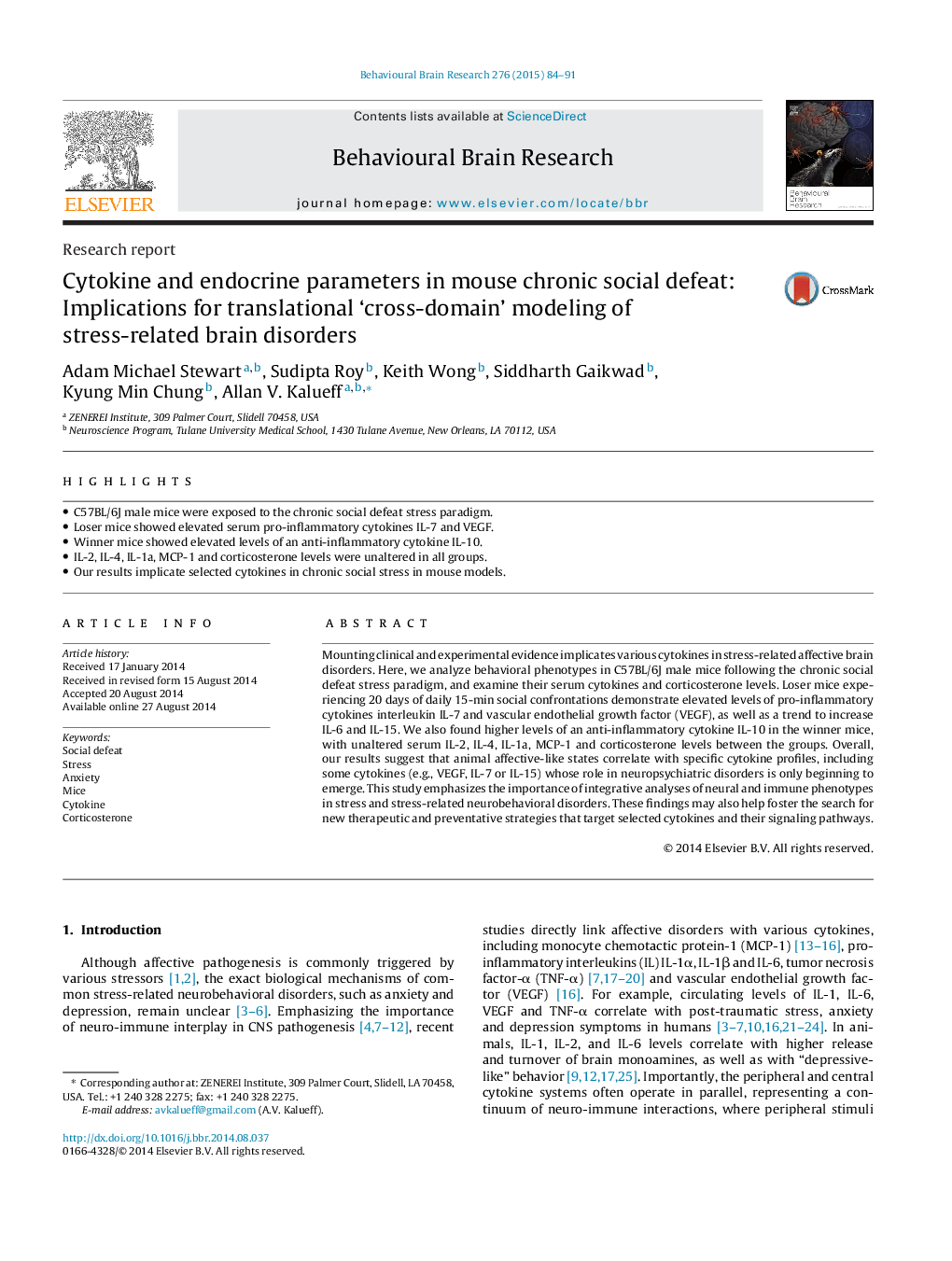| کد مقاله | کد نشریه | سال انتشار | مقاله انگلیسی | نسخه تمام متن |
|---|---|---|---|---|
| 6257432 | 1612956 | 2015 | 8 صفحه PDF | دانلود رایگان |

- C57BL/6J male mice were exposed to the chronic social defeat stress paradigm.
- Loser mice showed elevated serum pro-inflammatory cytokines IL-7 and VEGF.
- Winner mice showed elevated levels of an anti-inflammatory cytokine IL-10.
- IL-2, IL-4, IL-1a, MCP-1 and corticosterone levels were unaltered in all groups.
- Our results implicate selected cytokines in chronic social stress in mouse models.
Mounting clinical and experimental evidence implicates various cytokines in stress-related affective brain disorders. Here, we analyze behavioral phenotypes in C57BL/6J male mice following the chronic social defeat stress paradigm, and examine their serum cytokines and corticosterone levels. Loser mice experiencing 20 days of daily 15-min social confrontations demonstrate elevated levels of pro-inflammatory cytokines interleukin IL-7 and vascular endothelial growth factor (VEGF), as well as a trend to increase IL-6 and IL-15. We also found higher levels of an anti-inflammatory cytokine IL-10 in the winner mice, with unaltered serum IL-2, IL-4, IL-1a, MCP-1 and corticosterone levels between the groups. Overall, our results suggest that animal affective-like states correlate with specific cytokine profiles, including some cytokines (e.g., VEGF, IL-7 or IL-15) whose role in neuropsychiatric disorders is only beginning to emerge. This study emphasizes the importance of integrative analyses of neural and immune phenotypes in stress and stress-related neurobehavioral disorders. These findings may also help foster the search for new therapeutic and preventative strategies that target selected cytokines and their signaling pathways.
Journal: Behavioural Brain Research - Volume 276, 1 January 2015, Pages 84-91